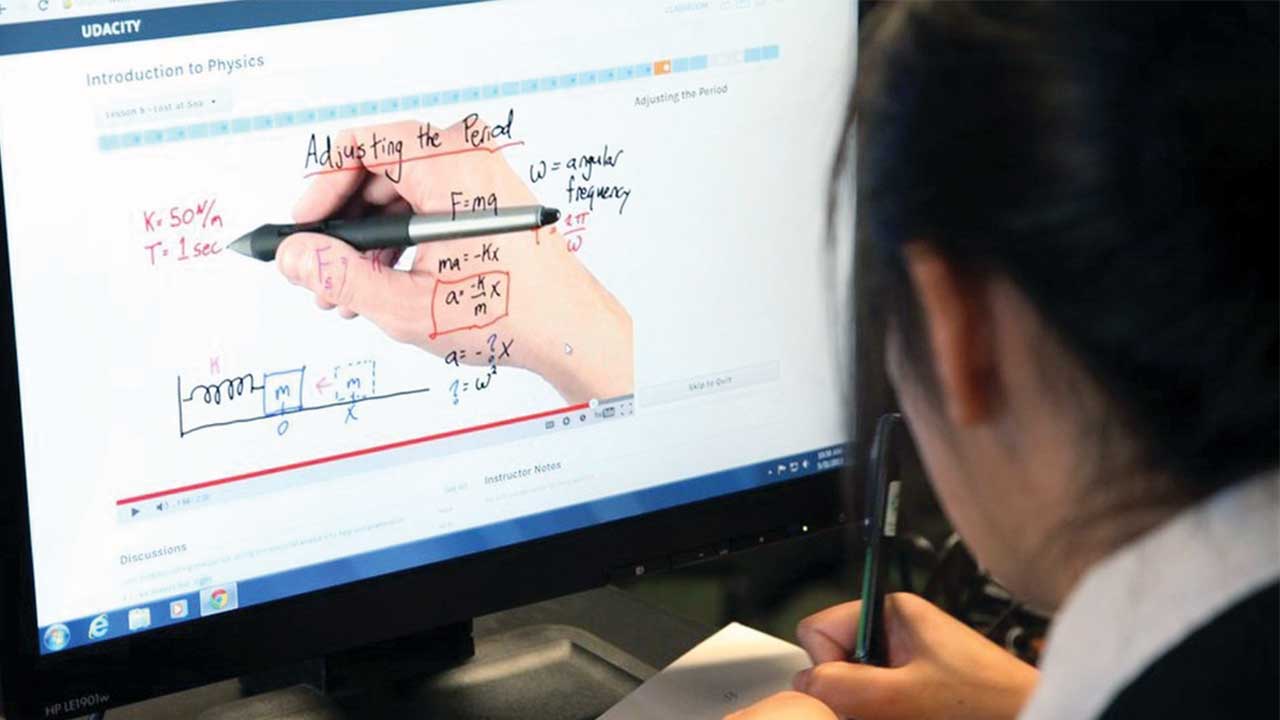
The Mauritius Institute of Education’s (MIE) Massively Empowered Classroom or the Virtual Campus, known as “Mo Klas”, aiming to build up a Mauritian network of digital learning resource creators by tapping on the collective intelligence of the country, was launched on 8 February 2017.
Mo Klas, developed by Microsoft Research in collaboration with the Learning Factory of the MIE, allows users - Educators studying at the MIE for a start - to upload and download resources that they have produced. The MIE will upload most of its intellectual capital (e-books, digital learning resources, presentations, videos and so on) on Mo Klas. They will be freely available to Educators who register on the website (registration is for checking authenticity of applicants).
In her address at the launching, the Minister of Education and Human Resources, Tertiary Education and Scientific Research, Mrs Leela Devi Dookun-Luchoomun, while lauding the initiative stated that it is in line with the vision of the education sector’s reform. The platform, she said, will empower teachers by providing them with suitable resources and tools, and through that, enable learners enhance their potential by using the appropriate technology.

Speaking about the reform, the Minister pointed out that the process takes into consideration the fact that learners of today will face uncertainties in the future in the field of work. Market demands in the coming years will be different, and therefore, learners are being prepared for jobs that might not exist today, she said. Most importantly, is that children are being prepared for a society that will be substantially different from what exists today, Mrs Dookun-Luchoomun added.
For his part, the Director of the MIE, Dr O. Nath Varma, stressed that the MEC is a project designed to bring online educational content and techniques in blended learning to the whole of Mauritius and even beyond.
According to him, the MIE has been looking for a solution that would meet the expectations of the Government and the Ministry of Education and Human Resources, Tertiary Education and Scientific Research in the wake of the major reforms in the field of education. This project will help to ensure that access is no longer a barrier to education. While it is breaking the final frontier for access to knowledge, it also meets the objective to bring massive change in the way we approach education of our children in the 21st Century, he added.
It should to be noted that there are only four MEC sites in the world: the MEC India, the Consortium of Universities in Jordan, an Egyptian project, and Mo Klas of Mauritius. The MIE will remain a major contributor of resources on the platform and will ensure the management of the website after its launching.
In the recent years, the MIE has moved towards the digitisation of the school curriculum. This initiative was taken in line with the increasing importance of technology in all spheres of life. As to now, a large percentage of the primary school curriculum, some subject areas in secondary education and pre-primary learning programmes, are available on digital formats. These digital learning resources are developed in some cases with Open Source Software and are released as Open Educational Resources.
How MOOCs work
“MOOC” stands for Massive Open Online Course. Usually these online courses are taught by universities all around the world (e.g. Stanford, Princeton, UC San Diego, Yonsei University, Leiden University, and over 700 other such universities). Other MOOCs are made by companies, like Google or Microsoft. They are available for anyone with an internet connection. Some of the popular MOOC providers include Coursera, edX, Udacity, and FutureLearn. They partner with universities, companies, and professors to provide MOOCs. MOOCs are designed for an online audience, teaching primarily through short (5–20 min.) pre-recorded video lectures. You watch these videos on a weekly schedule when it is convenient for you. MOOCs also have student discussion forums, homework/assignments, and online quizzes or exams. The course materials (e.g. video lectures, discussions, etc.) are free, but certain features like graded assignments, certificates, and mentorship are paid features. Course and/or certificate costs vary for each MOOC provider.
MOOC and open course providers
- Alison Free courses in 10+ Course Categories
- Apnacourse – course on PMP, ACP, CFP, CFA, FRM, ISTQB
- Canvas Network by Instructure
- Carnegie Mellon University Open Learning Initiative
- Class Central – Stanford, Coursera, MIT and Harvard led edX (MITx + Harvardx + BerkeleyX), and Udacity
- Coursera list of courses
- Curricki – open curriculua
- EdX courses
- FutureLearn, the Open University’s MOOC branch
- iTunesU – some courses – guide from DIY University (Apple doesn’t provide a list of courses, naturally); list of affiliates
- University – Berlin-based MOOC provider, listing courses in English
- Janux – the University of Oklahoma
- Miríada X – Spanish / Portugese courses
- MIT Open CourseWare
- MOOC.fr – dédié à des MOOC francophones (premier MOOC, Internet : Tout Y est Pour Apprendre)
- NovoEd – a series of online classes from top institutions including Stanford GSB, Babson, and the Kauffman Foundation, with the majority free of charge.
- Open2Study (Australia)
- Open Education Europa, a Web site that aggregates MOOCs and other free online resources from European universities.
- Open HPI, Hasso Plattner Institute
- Open Learning courses
- Open Learn – Open University (UK)
- P2P University – courses
- Qualt – Qualt advertises “Free mobile courses in internationally recognised professional qualifications. Anytime, anywhere.” The courses are available for mobile devices only.
- SyMynd courses from NYU, University of Washington, McGill University
- Stanford’s Free Online Courses
- Udacity courses
- Udemy list of online courses
- Universitat Politècnica de València – Spanish language
- University of the People – course catalogue
- Unow offers MOOCs in french
- WikiEducator content
- Wikiversity – ‘schools’
- Open Yale courses
 J'aime
J'aime














